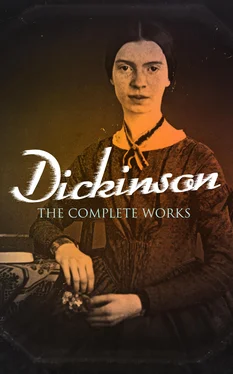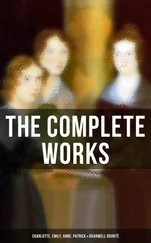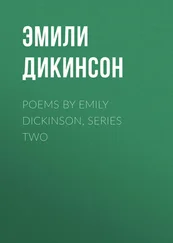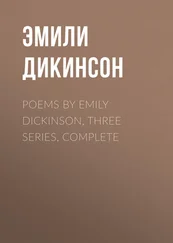Emily Dickinson
The Complete Works of Emily Dickinson
580+ Poems & Verses, Including Biography & Letters
e-artnow, 2022
Contact: info@e-artnow.org
EAN 4066338120434
Poems: First Series
Poems: Second Series
Poems: Third Series
The Single Hound
The Life and Letters of Emily Dickinson
Table of Contents Table of Contents Poems: First Series Poems: Second Series Poems: Third Series The Single Hound The Life and Letters of Emily Dickinson
PREFACE
BOOK I.—LIFE.
I. Success
II. "Our share of night to bear"
III. Rouge et Noir
IV. Rouge gagne
V. "Glee! the storm is over"
VI. "If I can stop one heart from breaking"
VII. Almost
VIII. "A wounded deer leaps highest"
IX. "The heart asks pleasure first"
X. In a Library
XI. "Much madness is divinest sense"
XII. "I asked no other thing"
XIII. Exclusion
XIV. The Secret
XV. The Lonely House
XVI. "To fight aloud is very brave"
XVII. Dawn
XVIII. The Book of Martyrs
XIX. The Mystery of Pain
XX. "I taste a liquor never brewed"
XXI. A Book
XXII. "I had no time to hate, because"
XXIII Unreturning
XXIV. Whether my bark went down at sea"
XXV. "Belshazzar had a letter"
XXVI. "The brain within its groove"
BOOK II.—LOVE.
I. Mine
II. Bequest
III. "Alter? When the hills do"
IV. Suspense
V. Surrender
VI. "If you were coming in the fall"
VII. With a Flower
VIII. Proof
IX. “Have you got a brook in your little heart?”
X. Transplanted
XI. The Outlet
XII. In Vain
XIII Renunciation
XIV. Love's Baptism
XV. Resurrection
XVI. Apocalypse
XVII. The Wife
XVIII. Apotheosis
BOOK III.—NATURE
I. “New feet within my garden go”
II. May-Flower
III. Why?
IV. “Perhaps you ’d like to buy a flower”
V. “The pedigree of honey”
VI. A Service of Song
VII. “The bee is not afraid of me”
VIII. Summer's Armies
IX. The Grass
X. "A little road not made of man"
XI. Summer Shower
XII. Psalm of the Day
XIII. The Sea of Sunset
XIV. Purple Clover
XV. The Bee
XVI. "Presentiment is that long shadow"
XVII. "As children bid the guest good-night"
XVIII. "Angels in the early morning"
XIX. "So bashful when I spied her"
XX. Two Worlds
XXI. The Mountain
XXII. A Day
XXIII. "The butterfly's assumption-gown"
XXIV. The Wind
XXIV. Death and Life
XXVI. "'T was later when the summer went"
XXVII. Indian Summer
XXVIII. Autumn
XXIX. Beclouded
XXX. The Hemlock
XXXI. "There's a certain slant of light"
BOOK IV. TIME AND ETERNITY
I. "One dignity delays for all"
II. Too late
III. Astra Castra
IV. "Safe in their alabaster chambers"
V. "On this long storm the rainbow rose"
VI. From the Chrysalis
VII. Setting Sail
VIII. "Look back on time with kindly eyes"
IX. "A train went through a burial gate"
X. "I died for beauty, but was scarce"
XI. Troubled about many things
XII. Real
XIII. The Funeral
XIV. "I went to thank her"
XV. "I've seen a dying eye"
XVI. Refuge
XVII. "I never saw a moor"
XVIII. Playmates
XIX. "To know just how he suffered"
XX. "The last night that she lived"
XXI. The First Lesson
XXII. "The bustle in the house"
XXIII. "I reason, earth is short"
XXIV. "Afraid? Of whom am I afraid?"
XXV. Dying
XXVI. "Two swimmers wrestled on a spar"
XXVII. The Chariot
XXVIII. "She went as quiet as the dew"
XXIX. Resurgam
XXX. "Except to heave she is nought"
XXXI. "Death is a dialogue between"
XXXII. "It was too late for man"
XXXIII. Along the Potomac
XXXIV. "The daisy follows soft the Sun"
XXXV. Emancipation
XXXVI. Lost
XXXVII. "If I shouldn't be alive"
XXXVIII. "Sleep is supposed to be"
XXXIX. "I shall know why when time is over"
XL. "I never lost as much but twice"
Table of Contents
The verses of Emily Dickinson belong emphatically to what Emerson long since called "the Poetry of the Portfolio,"—something produced absolutely without the thought of publication, and solely by way of expression of the writer's own mind. Such verse must inevitably forfeit whatever advantage lies in the discipline of public criticism and the enforced conformity to accepted ways. On the other hand, it may often gain something through the habit of freedom and the unconventional utterance of daring thoughts. In the case of the present author, there was absolutely no choice in the matter; she must write thus, or not at all. A recluse by temperament and habit, literally spending years without setting her foot beyond the doorstep, and many more years during which her walks were strictly limited to her father's grounds, she habitually concealed her mind, like her person, from all but a very few friends; and it was with great difficulty that she was persuaded to print, during her lifetime, three or four poems. Yet she wrote verses in great abundance; and though brought curiously indifferent to all conventional rules, had yet a rigorous literary standard of her own, and often altered a word many times to suit an ear which had its own tenacious fastidiousness.
Miss Dickinson was born in Amherst, Mass., Dec. 10, 1830, and died there May 15, 1886. Her father, Hon. Edward Dickinson, was the leading lawyer of Amherst, and was treasurer of the well-known college there situated. It was his custom once a year to hold a large reception at his house, attended by all the families connected with the institution and by the leading people of the town. On these occasions his daughter Emily emerged from her wonted retirement and did her part as gracious hostess; nor would any one have known from her manner, I have been told, that this was not a daily occurrence. The annual occasion once past, she withdrew again into her seclusion, and except for a very few friends was as invisible to the world as if she had dwelt in a nunnery. For myself, although I had corresponded with her for many years, I saw her but twice face to face, and brought away the impression of something as unique and remote as Undine or Mignon or Thekla.
This selection from her poems is published to meet the desire of her personal friends, and especially of her surviving sister. It is believed that the thoughtful reader will find in these pages a quality more suggestive of the poetry of William Blake than of anything to be elsewhere found,—flashes of wholly original and profound insight into nature and life; words and phrases exhibiting an extraordinary vividness of descriptive and imaginative power, yet often set in a seemingly whimsical or even rugged frame. They are here published as they were written, with very few and superficial changes; although it is fair to say that the titles have been assigned, almost invariably, by the editors. In many cases these verses will seem to the reader like poetry torn up by the roots, with rain and dew and earth still clinging to them, giving a freshness and a fragrance not otherwise to be conveyed. In other cases, as in the few poems of shipwreck or of mental conflict, we can only wonder at the gift of vivid imagination by which this recluse woman can delineate, by a few touches, the very crises of physical or mental struggle. And sometimes again we catch glimpses of a lyric strain, sustained perhaps but for a line or two at a time, and making the reader regret its sudden cessation. But the main quality of these poems is that of extraordinary grasp and insight, uttered with an uneven vigor sometimes exasperating, seemingly wayward, but really unsought and inevitable. After all, when a thought takes one's breath away, a lesson on grammar seems an impertinence. As Ruskin wrote in his earlier and better days, "No weight nor mass nor beauty of execution can outweigh one grain or fragment of thought."
Читать дальше












